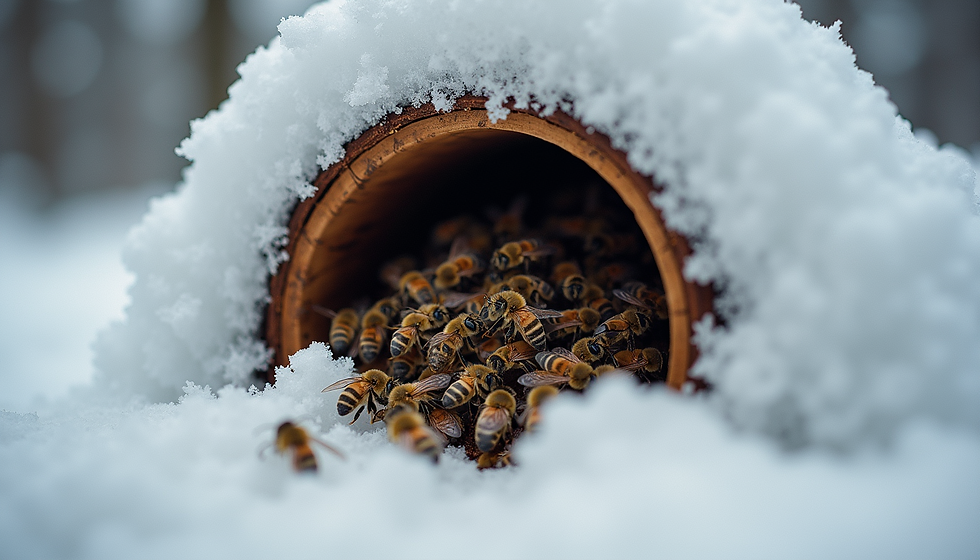Honey Adulteration - a good reason to buy local.
- Ben the Beekeeper

- Apr 16, 2023
- 1 min read
In March 2023 The Guardian reported that all samples of UK honey from main packers and processors tested under an EU fraud scheme showed markers of adulteration. This included brands sold through most of the major supermarkets. Across the whole of Europe 43% were found to be adulterated.
Honey labelling in the UK doesn't require specific countries to be named as the source of origin - "A blend of EU and Non EU Honeys" or "A product of more than one country" are common phrases which essential mean could come from anywhere.
The UK imports a lot of honey - 38,000 tonnes from China alone. Chinese honey is known to be at high risk of dilution with other sugars.
There are lots of ways honey can be adulterated:
Adding cheap sugars like high fructose corn syrup to dilute the pure honey.
Mislabeling the type and source of honey - for example it is purported that imports recorded of Manuka honey from New Zealand are higher than the amount that can be produced.
Over heating or processing such that any of the natural goodness is removed.
It is very hard to identify adulterated honey so the be best way to avoid it is to buy direct from the beekeeper. It is likely to cost more but ask yourself can something that costs less than £1 really be proper honey - the testing suggests it isn't.
You can read the article here.





Comments